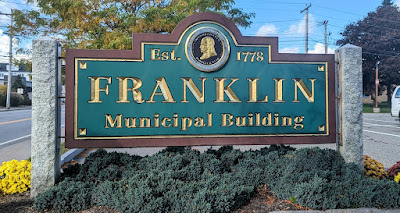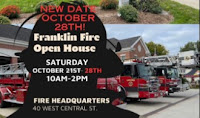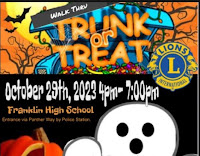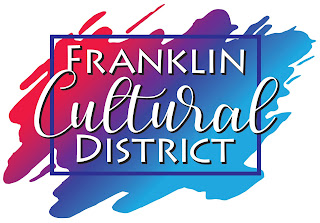If You Want Unity, Start with CommunityWe can only grow by embracing what brings us together
"In my opinion, it will not cease, until a crisis shall have been reached, and passed. When Abraham Lincoln gave his "House Divided" speech, he wasn't simply making an observation on the question of slavery that stood before Congress in the 1850s. He was quoting a familiar concept — one that had its origins in the Bible. In three of the four Gospels, in fact. By using this well-known phrase, he was calling upon his fellow citizens' common heritage and common understanding. He was also calling upon common sense. "I believe this government cannot endure, permanently half slave and half free."When you're so divided on something fundamental, can you find unity? The solution comes through building on smaller shared pieces of ourselves. Pieces that can be found in communities. The CEO / Worker DivideWith issues swirling in the business world such as remote work, artificial intelligence, and company culture, there is a disconnect between the way CEOs see it and the way workers see it. As if to prove this point this week, Blackstone CEO Steve Schwarzman claimed remote workers don't work as hard, saying they enjoy a lighter workload at home. While it's true that working from home gives us more flexibility and freedom, it doesn't mean that those not tethered to their desks aren't as effective. And how hard does Schwarzman think employees are working during their commutes to the office? Now, let's not forget that Blackstone is one of the largest owners of commercial real estate, so he may have a bit of an incentive for taking the position he did. The point is this: there is a divide between how different people see the workplace. Don't let there be a divide between you and other smart & curious people. Sign up for free or paid versions of Timeless & Timely today. A House DividedOn The World in Time podcast, Edward Achorn said:
Sound familiar? It should. But Achorn was talking about America in 1860. He's the author of The Lincoln Miracle: Inside the Republican Convention That Changed History. Today, we're watching a slow-motion trainwreck of leadership in the House of Representatives, as a lack of inter-party and intra-party unity cripples the U.S. government. There is one party that believes in the rule of law, following the Constitution, and of democracy itself. And there is another that bows to the whims and fancies of an autocrat who seeks to avoid prosecution, continually disgraces and repudiates the Constitution, and wishes to subvert election results. Case in point: the latest nominated Speaker [INSERT {F_NAME{ {L_NAME}] — indeed every nominee thus far in this cycle — voted to overturn the 2020 election.¹ With such a fundamental schism, with such nihilism in the core tenets of the country — even within a single party — is it possible to keep the house standing? The Basis of a CommunityWhether we're considering a global conglomerate or a disparate collection of states, the idea is simple: people collaborate to create something bigger, better, and stronger. Nothing worthwhile happens in isolation. It's no mistake that you can't spell community without unity. The word unity comes from the Latin unus / unitas, meaning "one." And community is derived from the Latin communitas (meaning the same), which is in turn derived from communis, which means "common, public, shared by all or many." A community is a social unit wherein its members share a common network. That network can be expressed in different ways: through values, interests, goals, and kinship. Broadly speaking, there are categories of communities to consider (via Helpful Professor):²
PlaceWe naturally organize based on proximity. Those around us are the most familiar and have similar needs. This is a driving force behind betting employees to return to the office: it puts us back on a common place. InterestThose who share hobbies, pastimes, and interests tend to congregate together. Thus, communities of interest are a natural way to bring people together. IdentityWho we are and what we stand for are driving forces in developing a culture. It only makes sense that we want to associate ourselves with similar people. NeedWhile identity, interest, and place cause people to naturally break into groups, there are wider concerns that can cross these divides. Often times, these needs supersede coteries and cliques because we recognize some things are bigger than us. PracticeCommunities of practice help identify those with expertise and skills — specialists, if you will — to help develop and expand this expertise for the greater good. If we appreciate and understand these types of communities, we can help those around us flourish. Whether these are hybrid or remote workers, or our duly elected representatives, we have a common, public goal. "I do not expect the Union to be dissolved – I do not expect the house to fall – but I do expect it will cease to be divided. It will become all one thing, or all the other." The crisis has been reached, as Lincoln prophesied. The question is whether rampant tribalism will allow it to pass. I write these essays to help you become a better version of yourself. Your support helps to make them possible. Thanks, and I'll see you on the internet.
Bonus content, because you read to the end:
1 No, that's not a mail merge or email service error; it was intentional. 2 Drew, C. (December 18, 2022). 21 Types of Communities. Helpful Professor. You're currently a free subscriber. For the full experience, upgrade your subscription. |
|















